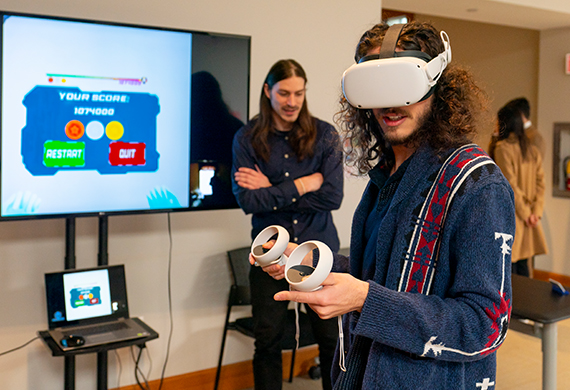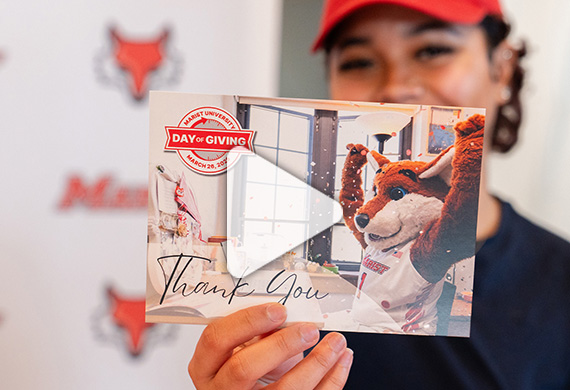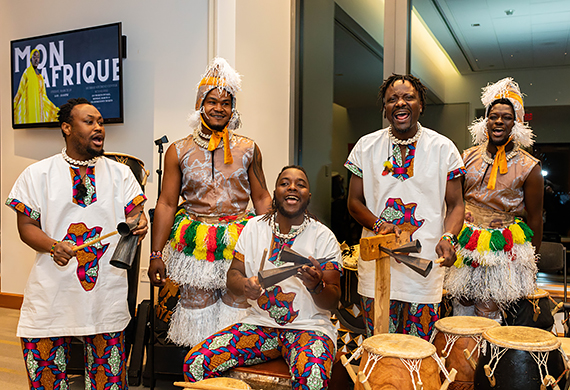The Human Side of Medicine
June 3, 2019—“Everything I’ve done has stemmed from being at Marist,” says Nichole Boisvert ’09. And in the 10 years since her graduation from the College, she has done quite a bit: a Fulbright year in Trinidad and Tobago,
Originally from Merrimack, New Hampshire, Boisvert majored in biomedical sciences at Marist, with minors in chemistry and creative writing, and was a member of the Honors Program. She also served as valedictorian for the Class of 2009. Her interest in traveling and service work can also be traced to her time at Marist, having traveled twice to Mexico with Campus Ministry’s Global Outreach Program. Looking back, she credits the College’s science and English faculty with nurturing her dreams. “The strong support from my faculty allowed me to explore and pursue my interests. Everything from [Associate Professor of Biology] Joseph Bettencourt helping to find me an internship at the National Cancer Institute to [Graduate School and Fellowship Advisor] Pat Taylor helping me focus in on Trinidad as a place to do AIDS-related work.” As Taylor relates it, “When Nicki approached me about the Fulbright, she was immediately distinctive to me, as pre-med students expressing an interest in the Fulbright are uncommon. It became increasingly clear to me that she is a rare soul. What has resonated across my observations of Nicki over the years is that she is consistently focused on the individual's story: her priority is always on the person in front of her and the uniqueness of their character and experience.”
Indeed, Boisvert’s Fulbright year in Trinidad and Tobago had a huge impact on her future career as a physician. She began by helping with mailings and events at an organization working with HIV/AIDS patients, later conducting a survey to gauge whether patients felt they were being treated in a culturally sensitive manner. Eventually, Boisvert became a full-time volunteer in the HIV clinic. She recalls, “Sometimes, I’d just visit with the patients. There was so much fear and stigma around HIV in Trinidad that many patients’ families wouldn’t visit. I shared test results and did counseling, and it was that one-on-one interaction that really motivated me to become a doctor and continues to inform my career.” Boisvert’s service work continued during her time at medical school at Georgetown; volunteering at a shelter in Washington, DC helped her keep in touch with her commitment to service.
Cultural competency strongly informs Boisvert’s work as a doctor with a largely diverse population. She recalls her experience with one patient, a Filipino man who was dying. “He had reached a point where no medical intervention was going to help him, so I said, ‘I’m so sorry, there’s nothing else we can do.’ Based on his cultural context, he interpreted that as meaning that we WOULDN’T treat him because he didn’t have money to pay. Of course, that wasn’t true, but that’s why it’s so important for healthcare providers to understand the nuances associated with culture.” Boisvert believes strongly in keeping the practice of medicine connected to its human side. She adds, “Sometimes just showing up for patients is the most important thing I can do.”
Boisvert currently sees patients in a clinic in the San Francisco area. She has found that family practice is more accepted on the West Coast, whereas the East Coast can be very specialty-driven. Says Boisvert, “A good family practitioner is well-trained and can take care of many of a patient’s needs.” The majority of Boisvert’s clientele has public health insurance, and most are immigrants from Asia, Latin America, and Africa. Her international experience and perspective are particularly helpful in this context. Boisvert especially loves working with women and the dying because of the impact she can have on both ends of the life cycle; she recalls one night in which she delivered a baby and called a patient’s death. She notes, “To go into medicine, you have to really love it, which I do. My patients are amazing, brave, and resilient. They trust me, and I find that incredibly humbling.”
When she’s not spending time with patients, Boisvert enjoys hanging out with Pippin, her 18-pound rescue dog. And she continues to put her minor in creative writing to good use, writing both prose and poetry. Says Boisvert, “I cannot NOT write. It’s a therapeutic outlet for me. At some point when I have the time, I plan to write about all the incredible people I’ve met along the way who have had such an impact on me.”



